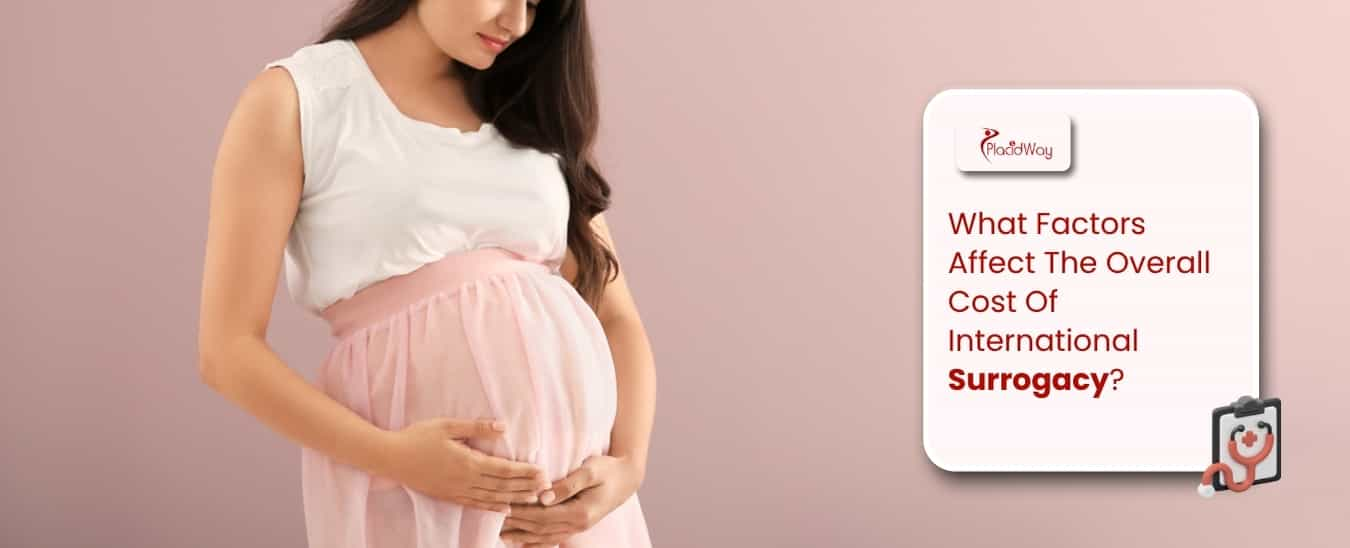Why Do International Surrogacy Costs?

Embarking on the journey of parenthood through international surrogacy is a deeply personal and often life-changing decision. While the emotional rewards are immeasurable, understanding the financial landscape is crucial for intended parents.
At its core, international surrogacy involves bringing together intended parents, a surrogate mother, and a medical team, often across different countries, to achieve a successful pregnancy and birth. This process, by its nature, introduces complexities and costs not typically found in domestic surrogacy.
What are the primary components of international surrogacy costs?
These primary components encompass everything from the initial planning stages to the baby's birth and subsequent travel home. Each category can vary substantially based on the chosen country, the specific clinic, the surrogacy agency, and individual circumstances. It's essential to consider these elements holistically, as they are interconnected and vital for a successful international surrogacy arrangement.
- Agency Fees: These cover the coordination, matching, screening, and administrative support provided by a surrogacy agency.
- Medical Expenses: This includes all fertility treatments, IVF cycles, prenatal care for the surrogate, and delivery costs.
- Surrogate Compensation: Payments made to the surrogate for her time, effort, and commitment throughout the pregnancy.
- Legal Services: Costs associated with drafting contracts, establishing parental rights, and managing immigration for the child.
- Travel and Accommodation: Expenses for the intended parents to travel to the surrogate's country for key appointments and the birth.
What medical expenses are involved in international surrogacy?
The journey typically begins with In Vitro Fertilization (IVF), which involves several stages, each with its own cost. If donor eggs or sperm are required, these will add to the overall expenses.
Typical medical expenses include:
- IVF Cycle Costs: This covers ovarian stimulation medications for the egg provider, egg retrieval, fertilization, and embryo culture.
- Embryo Transfer Procedures: The process of transferring the created embryo(s) into the surrogate's uterus.
- Medications: Hormonal medications for the surrogate to prepare her uterus for implantation, and any other necessary prescriptions.
- Prenatal Care: Regular doctor visits, ultrasounds, blood tests, and other screenings for the surrogate throughout the pregnancy.
- Delivery Costs: Hospital fees, doctor's fees for childbirth (vaginal or C-section), and post-delivery care for both the surrogate and the newborn.
- Donor Fees (if applicable): Costs associated with egg or sperm donors, including their compensation, screening, and retrieval procedures.
- Screening: Medical and psychological screening for both intended parents and the surrogate.
How much does surrogate compensation add to international surrogacy costs?
Components of surrogate compensation often include:
- Base Compensation: The primary payment to the surrogate for her time and effort. This varies significantly by country.
- Monthly Allowances: Payments for incidental expenses, such as transportation to appointments, childcare, or healthy food.
- Maternity Clothing Allowance: A stipend to cover the cost of maternity wear during pregnancy.
- Lost Wages: Compensation if the surrogate needs to take time off work for medical appointments, bed rest, or recovery from delivery.
- Invasive Procedure Fees: Additional payments for procedures like embryo transfer, amniocentesis, or C-section.
- Complication Fees: Payments for unforeseen medical complications during pregnancy or delivery that require additional care or extended recovery.
- Psychological Support: While often covered by the agency, sometimes there are direct allowances for therapy or counseling.
Do different countries have varying international surrogacy costs?
Absolutely, the geographical location plays a paramount role in determining the total international surrogacy cost.
Different countries have distinct legal landscapes regarding surrogacy, varying levels of medical technology and expertise, vastly different costs of living, and diverse compensation standards for surrogates. These factors combine to create a wide spectrum of pricing, making some countries considerably more affordable or more expensive than others for the same service.
For illustration, here's a general overview of how costs might compare:
| Cost Category | High-Cost Countries (e.g., USA) | Moderate-Cost Countries (e.g., Canada, UK) | Lower-Cost Countries (e.g., Ukraine, Georgia, some Latin American regions) |
|---|---|---|---|
| Surrogate Compensation | Very High | Moderate | Lower |
| Medical Procedures | High | Moderate to High | Lower |
| Legal Fees | High | Moderate | Lower |
| Agency Fees | High | Moderate | Lower |
Planning your trusted international surrogacy journey requires careful consideration of all potential costs. For personalized guidance and to explore reliable healthcare solutions, visit PlacidWay today.


.png)


-Package-in-Bangkok-Thailand-at-First-Fertility-PGS-Center.jpg)
-Package-in-Bangkok-Thailand-at-LRC-Fertility-Center.jpg)





Share this listing